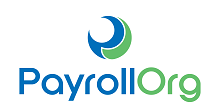Compliance
Paycards
Despite the advantages of paying employees by direct deposit, there are some employees for whom direct deposit is not a viable option. Often, the principal stumbling block is the employee’s lack of a banking relationship with a financial institution to which a direct deposit can be sent. As many as 10% of the employees in the U.S. are “unbanked” or “underbanked,” and this percentage is considerably higher in certain industries, such as food service, hospitality, and agriculture.
Employers that want to take full advantage of the benefits of paying their employees through electronic funds transfer need a method other than direct deposit for their “unbanked” employees. One increasingly popular alternative is pre-paid electronic paycards, which are debit cards that the employer funds with the amount of the employee’s net pay. The employee then accesses his or her pay by using the card to make purchases or withdraw cash.
Paycards are not only for unbanked employees, however. Recent studies suggest that some employees split their pay among traditional bank accounts and payroll debit card accounts as a form of financial management. Split deposit has long been recognized as a means of promoting savings by organizations such as the Consumer Federation and NACHA.
How do paycards work? In general, paycards work in a fashion similar to any other debit cards. They are pre-funded, host-based, stored-value cards that the employee can use to access his or her net pay at an automated teller machine (ATM) or a bank, or to make point-of-sale (POS) purchases. The employer funds the cards in the same way that it would fund direct deposit of payroll, subject to the NACHA rules.
Paycard benefits. There are several paycard benefits for both the employer and its employees.
Benefits for employers:
- Reduced costs for manual checks, lost and stolen checks, stop payment orders, fraudulent cashing of duplicate checks, paycheck production and handling, and bank reconciliation fees;
- Enhanced efficiency by eliminating paper paychecks and using electronic pay statements;
- All employees are eligible for electronic funds transfer, whether or not they have a banking relationship;
- Increased employee productivity as less time is spent cashing paychecks;
- Reduction of escheat issues.
Benefits for employees:
- Reduced costs by eliminating check cashing fees;
- Increased independence by eliminating need to ask relatives or friends to cash checks or pay their bills;
- Employees cannot take on debt with stored value payroll cards, which may improve their credit status;
- Increased safety by obtaining only the cash the employee needs rather than having to cash the entire paycheck;
- Easy to use;
- Employees are protected from loss because a lost or stolen card can be replaced with its full remaining value;
- ATM access means there are virtually no time or geographic limitations on funds access.
Compliance issues. Any employer that is considering implementing a paycard program will need to consider the legal and regulatory issues that affect paycards. Generally, the compliance issues are similar to those that apply to employee payments made by direct deposit, including laws and rules governing ACH transactions, employee privacy, and escheatment.
Federal and state regulations. In 2010, regulatory authority under the Electronic Funds Transfer Act was transferred to the new Consumer Financial Protection Bureau (CFPB), which has reissued Regulation E, its appendices, and Official Staff Interpretations. All states are required to follow these federal regulations and many states use a combination of both these federal laws and state codes. On October 4, 2016, the CFPB announced that it had issued its final rules on prepaid accounts. On January 25, 2018, the CFPB announced that it had finalized updates to the 2016 rules and extended the effective date. Generally, the rules will now take effect on April 1, 2019. The final rules revise Regulation E, which implements the Electronic Fund Transfer Act, and Regulation Z, which implements the Truth in Lending Act, and are intended to "create comprehensive consumer protections for prepaid accounts" - including paycards. The final rules require written disclosure of payroll card account-related information to employees.
Today, 28 states expressly recognize the payment method in either their state code or regulations. In most of the remaining states, wage and hour regulators have adopted enforcement positions, often recognizing payroll cards as a form of direct deposit (Alabama, Louisiana, and Mississippi do not regulate wage payments at all).
Recently, Oklahoma and West Virginia have amended their state laws regarding paycard use.
Links:
- Paycard Portal with information for employers, information for employees, and paycard news.
- White paper: Regulation of Payroll Card Accounts: A Guide for Policymakers (With Model Payroll Card Legislation) (February 2018)
- Visa, “An Employer’s Guide to Payroll Cards”.
- Consumer Financial Protection Bureau, “Prepaid Rule’s Key Changes for Payroll Card Accounts”.
- Government Relations Task Force Subcommittee on Electronic Payments (free to join for members).
Education Links:
- Guide to Successful Electronic Payments – which is available as an eBook, and is free for PAYO members

